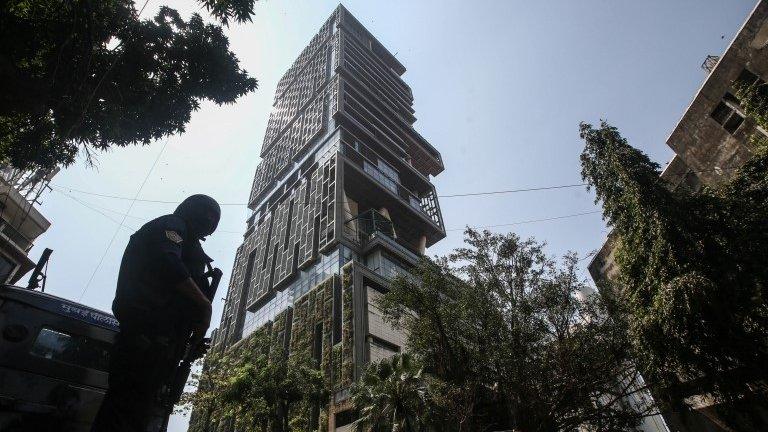Parambir Singh: The case of the missing top police officer
- Published
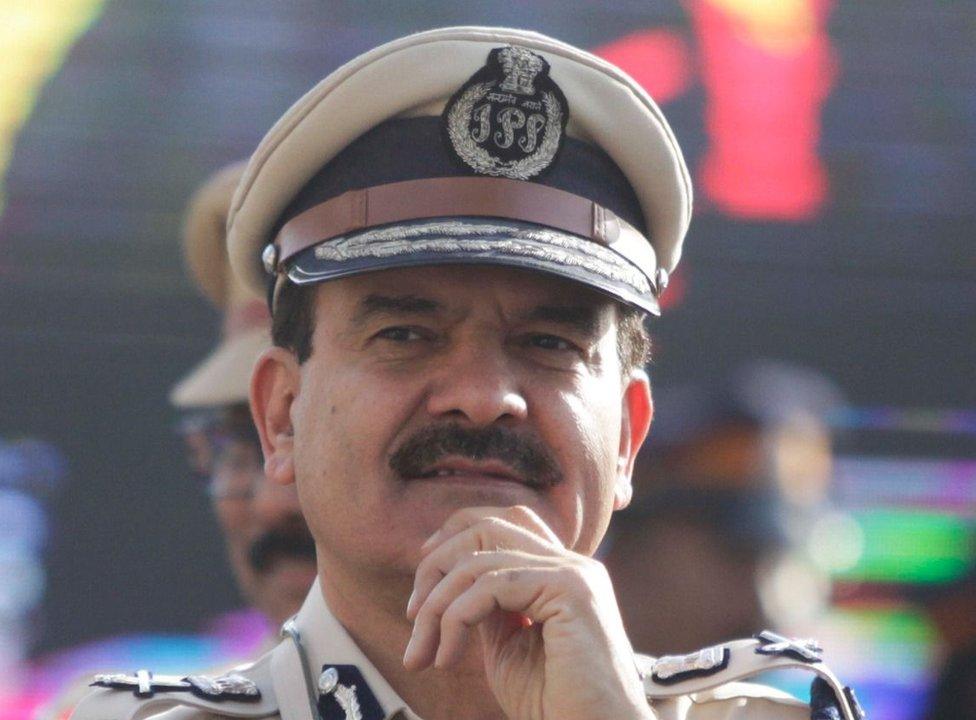
Parambir Singh has been not seen since early May
On 1 October, Indian authorities made a sensational announcement: the former police chief of Mumbai, the country's financial capital, was missing.
Parambir Singh, a high-profile officer with a swashbuckling reputation, had been elevated to head the 45,000-strong force barely two years ago.
Now, Mr Singh, 59, was unavailable at office, his apartment in Mumbai and his family home in the northern city of Chandigarh, some 1,600km (994 miles) away.
Even as the police launched a hunt to find one of their own, Mr Singh's family - his wife and daughter who lived with him in Mumbai and his son who is abroad - and his lawyers went silent about the officer's whereabouts.
It all began in February with a fiendishly tangled whodunit involving an SUV full of explosives which was found outside the house of Mukesh Ambani, Asia's richest man. In the following days, the body of the alleged owner of the vehicle washed up in the sea near the city - the police later determined that he had been murdered and his body was dumped in the water.
Things turned murkier when a police officer reportedly known to the dead man was arrested. Investigators believe Sachin Vaze, an assistant inspector with the elite crime branch, was part of plans to park the car with explosives outside Mr Ambani's house and also in the murder of the vehicle owner. Mr Vaze has denied the allegations.
In March, Mr Singh was removed from his position and moved to head Maharashtra's - of which Mumbai is the capital - home guards, a poorly-resourced force which assists the police. In Indian media-speak, Mr Singh had been "shunted" to a rather unglamorous department.
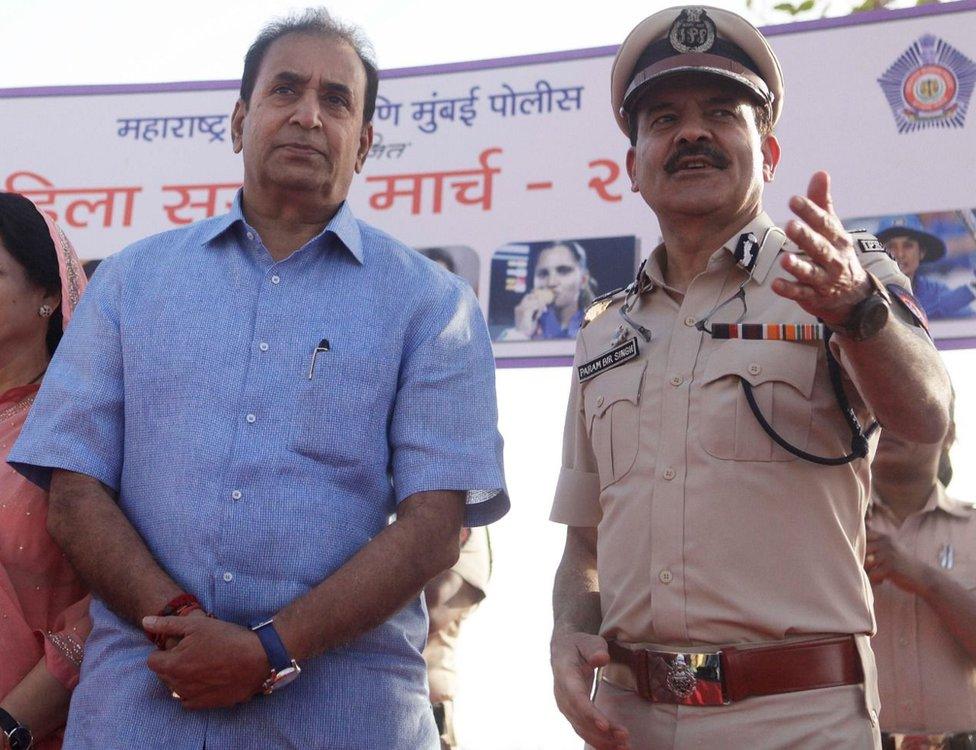
Mr Singh and former minister Anil Deshmukh (left) have traded allegations against each other
"This is not a routine transfer. Being the head of Mumbai police, serious mistakes have been made by officers working at the police commissioner's office. These mistakes are serious and that's why he has been transferred," the state's then interior minister, Anil Deshmukh, said. It was never made clear what these errors were.
Mr Singh joined his new job in mid-March in a modest office barely a few kilometres away from his earlier workplace, which is located in an Anglo-Gothic heritage building in the heart of the city. Almost immediately after, he shot off a letter to the government, accusing Mr Deshmukh, his boss, of extortion and corruption. Again, no evidence was provided.
In the letter addressed to Chief Minister Uddhav Thackeray, the officer accused Mr Deshmukh of ordering Mr Waze to collect millions of dollars in bribes from the city's bar owners and hoteliers, who struggle to comply with a thicket of regulations.
Mr Deshmukh denied the allegations, but was forced to resign in early April. A federal financial investigation agency now began probing Mr Deshmukh and summoned him five times for questioning. In November, the former minister himself was arrested. Alluding to Mr Singh, he said: "The one who accused me has run away abroad".
Meanwhile, in May, Mr Singh proceeded on medical leave, and got his leave extended twice.
And then he vanished.
At Mr Singh's residence in a high-rise building in the city's upscale Malabar Hills neighbourhood, his wife and daughter have not spoken about his whereabouts. His lawyer Anukul Seth declined to comment when approached by the BBC. News networks have breathlessly speculated that the officer had "fled" abroad - one said he was in Russia; the other reported he was safely ensconced in Belgium.
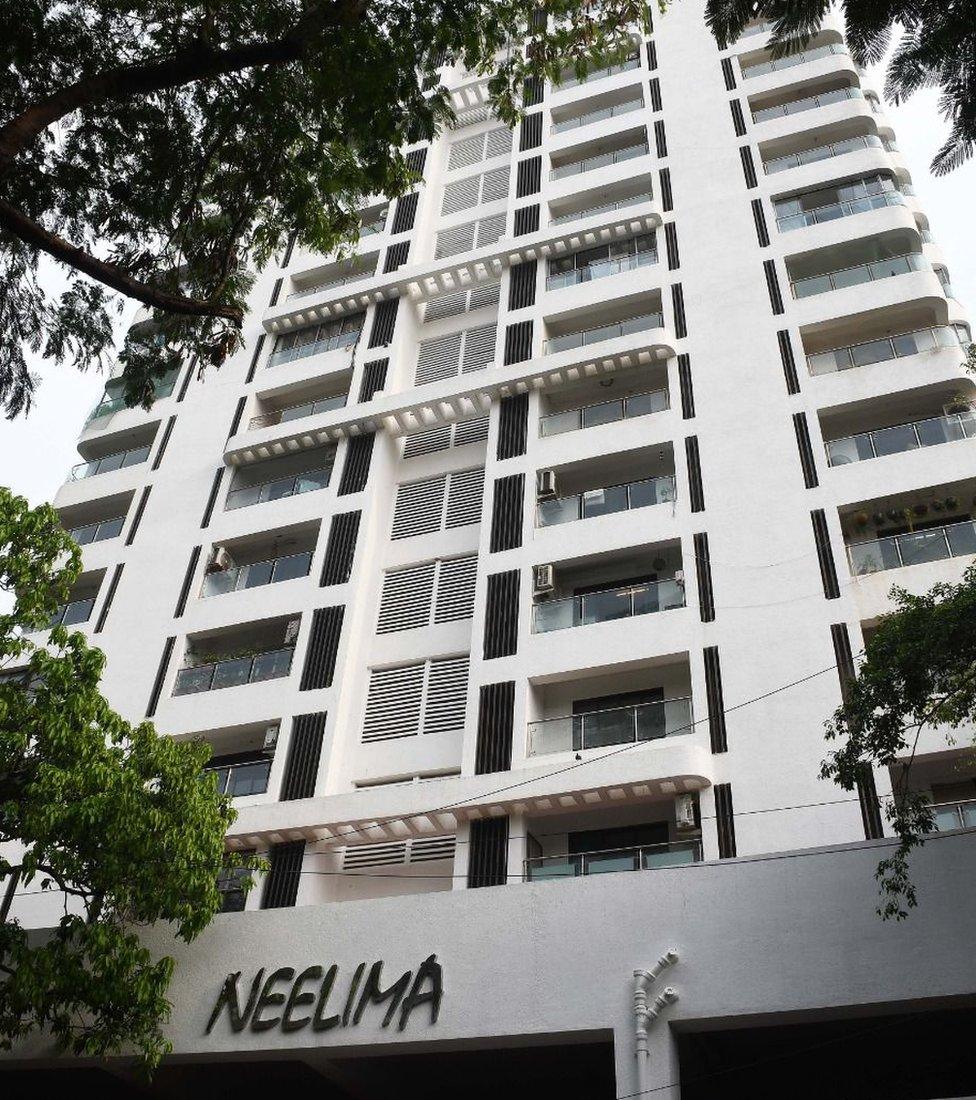
Mr Singh lives in an official apartment in a building in Mumbai

"We are searching for him. As a government officer, he can't go abroad without government clearance… If he goes away, then it's not good," the new interior minister, Dilip Walse Patil, told reporters.
The Maharashtra government has set up a panel, headed by a retired judge, to probe the case. Mr Singh is now facing four criminal cases of extortion filed by realtors, hoteliers and bookies. Mr Deshmukh, his ex-boss, has not been charged yet and has been remanded in custody until 12 November.
What has further muddied the waters is Mr Singh's refusal to turn up for questioning when summoned by the panel. Instead, through his lawyers, he filed a petition in the court challenging the probe itself. His lawyers told the court the fact that Mr Singh was communicating with the panel indicated that he was not fleeing the law.
Clearly, too little is still known about the case. Is there any connection with the case involving the explosives-laden car? What prompted Mr Deshmukh to remove Mr Singh from office? Why did Mr Singh disappear after making serious allegations against his minister? Why is Mr Singh not appearing in front of the panel investigating the case?
There are no answers yet.
A masters in sociology, Mr Singh, born to a bureaucrat father and a homemaker mother, was known as an outgoing officer. He kept fit and played cricket. In his four-decade-long career, he took on Maoist rebels in rural districts and gangland bosses in the city. In one of his earlier postings in Mumbai in the 1990s, Mr Singh worked with a team of officers to clean up the underworld. At the time, India's richest city was being suffocated by gang wars, extortion and kidnappings.
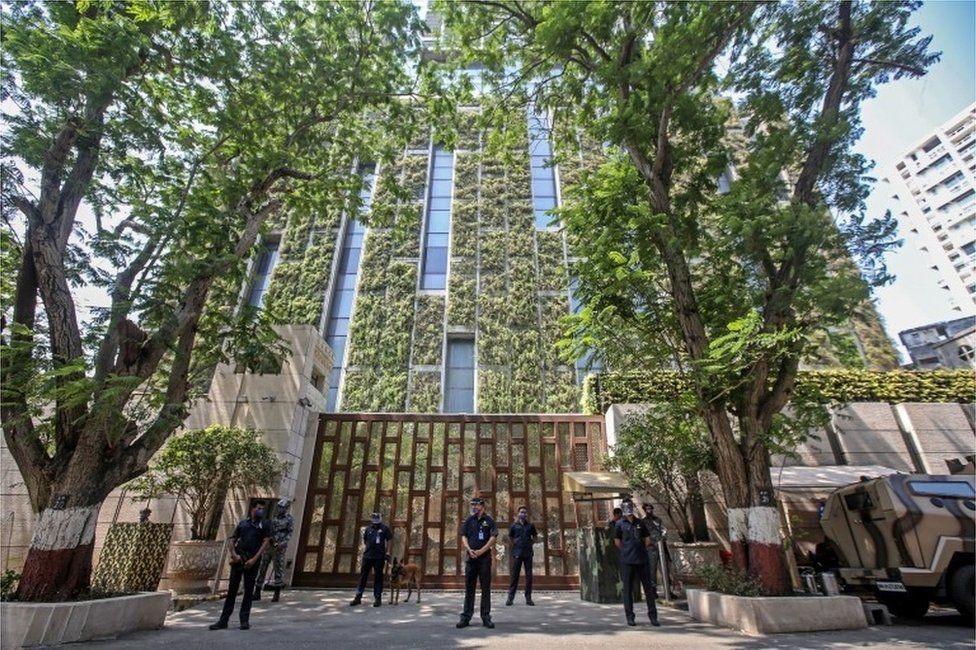
A vehicle laden with explosives was found near the house of Mukesh Ambani in February
He shot to limelight by working with "encounter policemen" - controversial crack shots belonging to a unique, unofficial policing system - to weed out gangsters who often held businessmen and film actors and producers to ransom. S Hussain Zaidi, a journalist who has chronicled crime in the city, wrote that Mr Singh along with another senior officer were "assigned the task of wiping out the underworld from the city" and the two "formed three elite encounter squads" for the job.
Mr Singh is due to retire next year when he turns 60. "I am very much in India and have not left the country," Mr Singh told a journalist who spoke to him on the phone in August.
Except his own force doesn't appear to know why he has not come forward, nor where he is.
- Published18 March 2021
